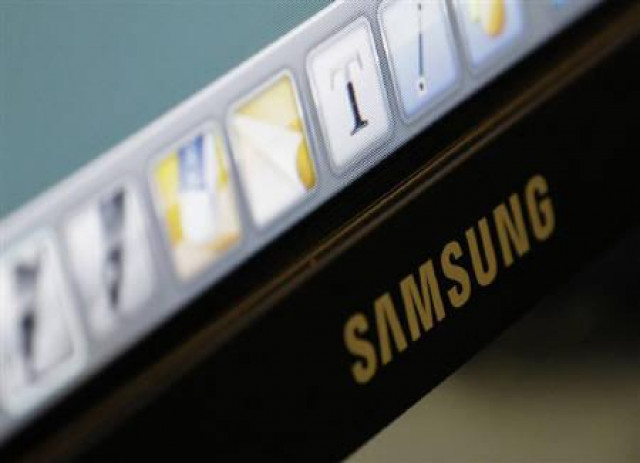Memory chip sales hit record high, Samsung amps up advanced chip output
Samsung to expand production of HBM chips, sharply increase capital spending next year to meet rising demand

Samsung Electronics expects demand for memory chips for the global AI infrastructure build-out to far outstrip the company's supply, and said on Thursday it will focus on mass producing its most advanced chips to capitalize on the boom.
Samsung posted record quarterly revenue from its key memory chip business on Thursday, an impressive turnaround, after disappointing performances in the past several quarters as it struggled to catch up with competitors in the AI chip race.
The world's top memory chipmaker said it plans to significantly expand production of high-bandwidth memory (HBM) chips, a key building block of artificial intelligence chipsets, and sharply increase capital spending next year to meet rising demand.
"It is expected that customers' demand for the next year will exceed our supply, even considering our investment and capacity expansion plan," Kim Jaejune, a Samsung memory chip business executive, told analysts on its post-earnings call.
He said memory chip demand would be "much stronger and faster than usual," accelerating price increases.
Its shares rose as much as 5.3% after its results, outpacing a 0.9% gain in the benchmark KOSPI.
Chip shortage expected to persist
Samsung's bullish comments echo the robust outlook offered by its rival SK Hynix, which on Wednesday said it expected an extended chip "super cycle" spurred by the AI boom, as it had already sold out all of its chips for next year.
The turnaround reflects the unexpected boom in conventional chip prices, with supply squeezed by the industry's shift to producing advanced AI chips, while demand is rising for data centers.
Kim said the shift was constraining the supply of memory for mobile phones and personal computers, "and the supply limitations are expected to persist into next year."
Samsung's chip business, its main cash cow, posted an operating profit of 7 trillion won ($4.92 billion) in the third quarter, up 80% from a year earlier. Its memory chip business reported record revenue of 26.7 trillion won, up from 22.3 trillion won a year ago.
Current-generation HBM3E chips are being sold to "all related customers," Samsung said, which suggests it has joined rivals such as SK Hynix in supplying the latest 12-layer HBM3E chips to artificial intelligence chip leader Nvidia
"Looking ahead to Q4, the rapid growth of the AI industry is expected to open up new market opportunities," Samsung said.
Tech giants, including OpenAI, have in recent months announced multi-billion-dollar plans to invest in AI infrastructure despite uncertainty about returns, sparking investor questions as to whether the AI boom may be the next big bubble.
Samsung has been slow to capitalize on soaring demand for AI chips that benefited its rivals like SK Hynix, a key memory chip supplier to Nvidia, but the recent boom in commodity chip sales has been a boon to the South Korean tech giant that also makes smartphones, TVs, home appliances, and flat screens.
Investors are looking for signs that Samsung is narrowing the gap with SK Hynix with the next-generation HBM4 chips.
Samsung said its HBM4 samples are being shipped to key clients, and it will focus on the mass production of HBM4 products next year, betting on rising demand.
It has already lined up customers for its "significantly expanded" HBM bit production plan for 2026 from this year, Kim said.
"However, as additional customer requests continue to come in, we are internally reviewing the possibility of further capacity expansion," he said.
Samsung posted 12.2 trillion won in operating profit for the July to September period, in line with its estimate of 12.1 trillion won.




















COMMENTS
Comments are moderated and generally will be posted if they are on-topic and not abusive.
For more information, please see our Comments FAQ